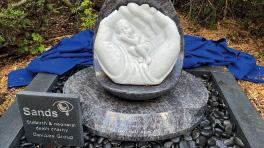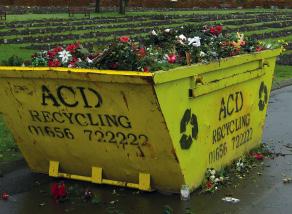10
The ICCM Journal | Spring 2022 | V90 No. 1
joined up thinking When it comes to post bereavement care who is best placed to provide information to families? In my article in the last edition of the Journal, I highlighted the lack of community involvement and support to families which has been noticeable with the reduction of ministerial involvement in funerals. This has provoked a number of conversations about how families are made aware of the information about the organisations that are out there to help them. Each charity and organisation self-promote through the various channels now available to them whilst trying to keep advertising costs to a minimum so more can be invested in their main aims. Social media is hit and miss with those who use it as to whether they get linked in to the mail push or receive shared links from friends, not everyone looking for support uses social media or trusts all the information that they see on line. Not every charity gets corporate support to produce an advert for TV, radio, press or other media but continues to offer and provide the care and support to families. When it comes to post bereavement care who is best placed to provide information to families? There are various groups that have been set up to provide this across the country but again people have to have heard of them to be able to make an approach. How many of you have over the years explained to management and others that during the process of grief and loss, families first blame the GP or hospital for the death, then complain to or about the funeral director and finally the bereavement service teams as we are responsible for the grave/garden of remembrance, memorialisation or whatever else the target is? Because we are at the end of the line we are open to this for as long as it takes for the family to come to terms with the loss. Whereas doctors and funeral directors are seen as professionals, we are seen as local authority workers and as such are not afforded the same level of respect. We are there for families to come back to again and again over the years, often taking the brunt of complaints that has nothing to do with us or the service we offer. The time spent with families and the hostility we face is not really recognised by anyone outside the sector. However, this puts us in the ideal situation to maybe take the next step and start to fill the void and become more connected to the families who use our services and find the opportunities for the care and support we all need. Should we as bereavement service managers be looking to make our service more approachable and provide contact information for people that need it? Is a list of contacts on a website or an annual remembrance service enough for our clients? How do we communicate with families at the time of need? We rarely get the opportunity to speak to the bereaved family prior to the funeral and unless they have a question regarding a memorial, are booking a witness appointment or making a complaint, afterwards either. It is all too late and we become a reactionary rather than proactive in the process. There are fantastic examples across the country where bereavement services have worked in the community, and I know that given the opportunity and resources there is so much more we could do. Connections with local schools provides pupils with a knowledge of the cemetery and the famous people and war graves contained therein, as well as wildlife and safety issues. We can also work with staff and pupils to provide explanations of what happens should a class member or parent die. Provide the opportunity for them to come and pay their respects and remove the stigma that surrounds death and get people to open up and talk. Work with local charitable groups building up a working relationship offering private tours of the crematorium in exchange for knowledge and contacts or even working parties. I know from working with a number of managers across the north west, most of us put in a lot more hours for little or no financial reward and feel undervalued by the authorities but regard this as a vocation not a job and rarely miss an opportunity to talk to people about the work we do.

















